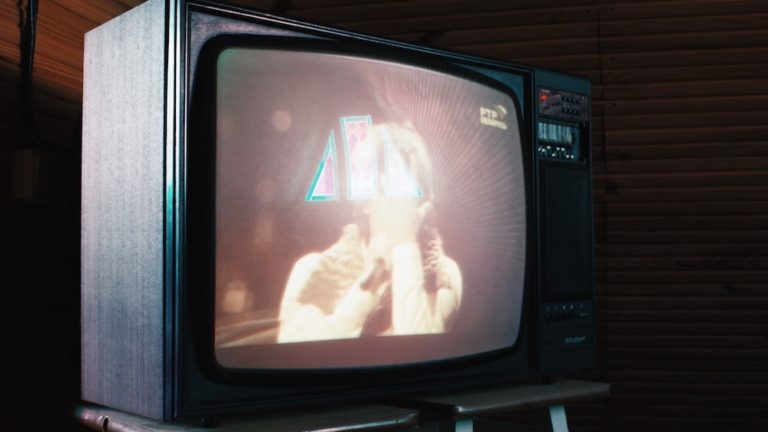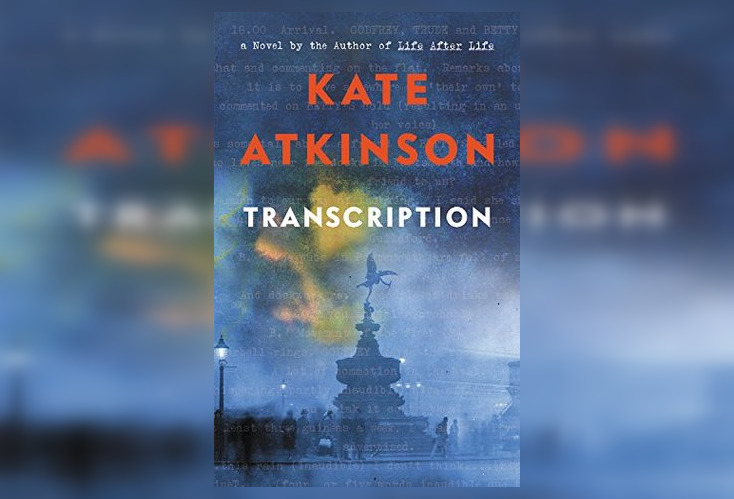Chancey learned about the missing neighbor girl from the flyers stuffed in her mailbox. They were written in the kind of English she understood best: basic, with pictures. The girl’s name was Amal; she’d recently turned six; and, in the up-close photo, Chancey made out thick, dark eyelashes that framed enormous brown eyes. She stuck the flyer to her family’s refrigerator.
“What’s this?” her husband Tommy said in their native Vietnamese. He’d just returned from swimming at Fairfield Leisure Center and reeked of chlorine.
“A girl is missing,” Chancey said. “They put this in the mailbox.”
“A girl from here?”
“No, from Bonnyrigg.”
“That’s so far away,” Tommy said.
“It’s only fifteen minutes away.”
“By car,” Tommy said. “And who would want to steal a Lebanese kid?”
Chancey rested her index finger over her lips. She took a step toward the flyer and held her breath—she tried to focus on the girl’s face, but the scent of chlorine wafting from Tommy made her diaphragm shiver. The first and only time she’d set foot at the local pool to drop her children off for swim lessons, the stench of heated chlorine and children’s sweat was so overwhelming that she’d run out to the parking lot to throw up. Since then, the pool had been Tommy’s domain.
Tommy moved his finger to the center of the little girl’s face, tapping quickly like he was pointing out on-sale items in the Coles weekly catalogue. “Leh-baah-neee,” he said in English with a shake of his head.
Although neither Chancey nor Tommy could identify Lebanon on a map, nor tell the difference between the Lebanese and the Greeks, or the Lebanese and the Syrians, or the Lebanese and anyone else with densely packed lashes that fanned, peacock-like, from their eyelids, the Lebanese had become Tommy’s latest fascination. He blamed the Lebanese for the rising crime rate in southwest Sydney. He blamed the Lebanese for instances of double-parking. He blamed the Lebanese when housing prices went up or down. And every time he caught a whiff of body odor—nose prickling and spicy—he assumed that it emanated from someone who was Lebanese.
Tommy opened the fridge door and took out a bottle of blue Gatorade, which he sipped on like a delicate tea. After wetting his mouth, he put the bottle back in the fridge and flexed his skinny arms. For someone who went swimming so often, Chancey found it odd that her husband’s chest remained as concave as the first time she’d seen him shirtless on their wedding night. She grimaced but didn’t say anything.
“Get rid of this,” Tommy said, flicking his wrist at the flyer. “We don’t need to think about these things.”
***
For the rest of the week, it seemed that any time Chancey turned on the television, the soft, white face of Madeleine McCann stared at her. Straining to understand the newscasters, Chancey learned that the wide-eyed girl was three-years-old and had also gone missing, presumably kidnapped, from a resort in Portugal. The girl’s parents—a severe-looking woman with a pointy nose and blonde hair, and a pinkish man who always looked like he was concentrating really hard—pleaded at news conferences for anyone with information to come forward.
“She’s so dead,” said Chancey’s eldest daughter, Helen, emerging from her bedroom to raid the refrigerator.
“Don’t eat snack, I cook dinner soon,” Chancey said.
“But I’m hungry.”
“Why you think she dead?”
“She just is,” Helen said, popping a party-sized Snickers bar into her mouth. She was still in her school uniform, her blue polo untucked, her skirt shortened by Chancey herself after Helen had begged for her to take it up a few inches because none of the other year ten girls wore their skirts long. “If a missing person isn’t found within three days, they’re done.”
“How you know?”
“Everyone knows, Mum. Duh.”
“My big brother was sent to a re-education camp, and we didn’t know where he was for three years,” Chancey said in Vietnamese, hoping that Helen understood. Because sometimes, she did. Chancey had agreed to raise Helen to speak only English after Tommy made the case that teaching her Vietnamese would sabotage her chances of becoming a fluent English speaker. The problem, which she didn’t realize until it was too late, was that it meant she would never be able to comfortably communicate with her daughter. Both Chancey and Tommy reached the limits of their English every day while having the most elementary of conversations. So sometimes, when Chancey had something important to say, something that she knew her English would muddle, she tried Vietnamese, hoping that her daughter had absorbed enough from overhearing her parents speak. “But we never gave up,” Chancey continued. “We never believed that he was dead, and we eventually reunited with him. He was in America—Ohio, to be exact. But he was alive.”
“I caught none of that.”
Chancey sighed.
“Your un-co,” she began in English. “He go missing in—”
“Defs a pedo.”
“What?”
Her daughter groaned and gestured at the TV.
“A creepy old man definitely took her.”
“Creepy—what it mean?”
Helen sighed again.
“It doesn’t matter.”
They kept watching, Chancey pushing her finger against her mouth so hard her lips turned white. Hearing footsteps up the driveway, both she and Helen turned to see the front door swing open—Tommy in flip flops and swim shorts, head in a bucket hat bearing the Australian flag, a tote full of towels and goggles slung over his shoulder, while their youngest daughter Fiona stood barely reaching his hip, her hair wet in a Minnie Mouse towel. Helen rolled her eyes, returned to the television.
“They find her?” Tommy said in English, pointing at the screen where the news had cut back to the same photo of the McCann girl—her face framed by bangs, her mouth slightly open, her teeth still so new that there were small gaps between them.
“Not yet,” Chancey said. “What’s that?”
Tommy held a balled-up sheet of paper in his free hand.
“Neighbor put another paper in letter box for Leh-baah-nee girl.”
“Who even leaves their kid alone in a hotel room?” Helen said, eyes glued to the television. “For two doctors, her parents aren’t that smart.”
“Even if these white parents were stupid, they don’t deserve this,” Chancey said, switching to Vietnamese.
“Excusez-moi?”
“I would want to die if something happened to you or your sister. They probably feel broken right now. I don’t think—”
“MUM. ENG-LISH please.”
Chancey sighed again.
“She suffer enough.”
“Well, we’ll see about that,” Helen said with a cool disinterest that she’d adopted around the time she started high school. Chancey found it obnoxious, had wanted to tell Helen to stop acting like she knew everything, to stop acting like she was older and wiser than she really was, to stop treating her mother like she was an idiot. She wanted to tell her daughter that just because her own English was limited didn’t mean she hadn’t lived a life. And if only Helen understood more Vietnamese, Chancey would be able to tell her just how much of a life she had lived. Instead, Chancey only ever managed to tell Helen to “Stop it,” which was always met with a “Stop what?”, which led to an unwinnable fight.
“This one need bath,” Tommy said, giving Fiona a pat on the head, his way of telling Chancey it was time to get to work. “Stinky stinky.”
***
Chancey shampooed Fiona with apple-scented goop, piling her daughter’s sudsy hair like a soft serve cone.
“How was the swimming lesson today?” she said in Vietnamese. While Tommy had dug his heels in on only speaking English with their children, Chancey had learned her lesson. She used English with Fiona whenever Tommy was around, but in private, she spoke to her youngest in Vietnamese. At six, Fiona understood more than Helen.
“Fine,” Fiona said.
“What did they make you do?”
“Float on our backs like starfish.”
“That’s impressive. Close your eyes.”
She rinsed her daughter’s hair, wiping soap from her round face.
“Mummy—”
“Yeah?”
“I don’t want to do swimming lessons anymore.”
Fiona kept her eyes on the bath bubbles that had gathered over her knees.
“But swimming is an important life skill,” Chancey said. “You know, when I was a girl, our boat capsized just as we were arriving at Bidong Island, and I only made it to land because I could swim. Everyone else died! But I remembered how to tread water and how to breaststroke, so I swam all the way to the island while everyone else drowned—”
“But I don’t want to—”
“Why not? What’s wrong with swim school?”
Fiona now grabbed at the bubbles, which disappeared each time her hands closed into fists.
“It’s not fun.”
“Neither was being a refugee! But there are things we need to do to survive—”
“Can’t I just wear floaties?”
“Fiona, do you think I had floaties when I was escaping Vietnam? Do you think that when you bribe fishermen to smuggle you out of your country in the middle of the night, they give you a nice, air-filled donut to sit in so you don’t drown at sea?”
“Everyone who goes on boats has to wear floaties. You said so!”
“That’s different, that’s for swan pedal boats where—”
“I don’t want to go swimming anymore,” Fiona said, sticking her hands under her armpits.
“Did something happen today?”
Fiona kept staring at the islands of bubbles floating in the tub. Unlike Helen, who had always been willful, quick to talk over people, and outright pushy, Chancey’s youngest daughter was quiet, reserved, and sensitive. She’d seen the way Fiona hung back whenever she was introduced to other children, the way she paid attention to people—studied them, even—before she opened her mouth, the way her shoulders slumped and her eyes fell to the ground whenever she was in the presence of cousins fighting or adults raising their voices.
“Fiona,” Chancey said, placing her thumb and finger under Fiona’s chin and turning her daughter’s face toward her. “What happened?”
“The flyers.”
“What?”
“Daddy said mean things about the flyers.”
“What do you mean? What flyers?”
“The missing girl flyers at the pool!”
“About the girl from Bonnyrigg?”
“I don’t know where she’s from! Daddy saw the flyers at the pool, and he said really loud so everyone could hear that she’s a—” and here, she switched to English—”terriblist.”
“A what?”
“The people hiding Sadman Hussein.”
It took Chancey a moment to figure out what her daughter was saying.
“Oh Jesus,” Chancey said in English when it finally clicked. She could feel the skin of her fingers turning to prunes as she thought of a response. “So, you don’t want to go back to swim lessons because you’re scared of—” Chancey realized she didn’t know the Vietnamese word for terrorism, so she tried to get her mouth around the English sounds—”terro-blism?”
Fiona’s mouth and nose scrunched.
“No!”
“Then what is it?”
“I don’t want to go back—” Fiona said, lowering her voice to a whisper—“because of Daddy.”
***
Tommy hadn’t proposed to Chancey sixteen years ago so much as suggested that they get married. After five dates at various McDonalds around Sydney, he’d promised that if she agreed to marry him she would never have to work again; he had a union job at the Sara Lee factory and could care for all her needs. Chancey—who was so tired from working back-to-back shifts at the dim sum house, tired of having no family in Australia, tired of being alone, tired of feeling like she’d have to spend the rest of her life fending for herself; who, if not attracted to Tommy, at least admired his confidence, his sense of direction, his belief that, together, they could do better for themselves—agreed to become his wife. She also agreed to take his last name and get an English name like he had when he first arrived in Australia. “Chancey” was his idea— “like getting a second chance,” he’d said. She didn’t like it, but she didn’t hate it, either. Mostly, she was too embarrassed to ask for the name she actually wanted—Elizabeth, like the Queen.
And Tommy, as unromantic as he was, did uphold his end of the bargain. He covered the mortgage on their modest single-story home and paid for a whisper-quiet Fujitsu air-conditioning unit. The pantry was always full of Le Snaks, fruit roll-ups, and Tiny Teddies for treats in the girls’ lunchboxes. Bills were paid on time. But just because Chancey didn’t have to work a conventional job didn’t mean she didn’t have to work: she cooked every meal, she did laundry, she swept and mopped, she mowed the lawn. When the girls were younger she was the only parent on feeding and nappy duty, she took the children to school, she picked them up from school, she did everything so that Tommy didn’t have to lift a finger when he got home. And what he didn’t tell her was that just because she didn’t have to worry about money didn’t mean that she wouldn’t be thinking about it all the time. It was impossible to not think about it. When Tommy peeled twenties and fifties from his wallet each week so she could buy groceries, pay for Fiona’s and Helen’s music lessons, or add gas to the mower, he made a show of it, slapping each bill on the dining table, keen to remind her of the life he was providing while she sat at home allegedly doing nothing. And instead of remarking on how small a man he had become, how he seemed to literally and spiritually shrink with each passing year, Chancey instead pressed a finger to her lips, because if this wasn’t the life she had wanted for herself, at least her daughters were never left wanting. To retain what was left of her dignity, she took on small amounts of piecework, sewing crop tops and halter necks, so she could treat herself to nail polish or a bottle of Olay without thinking of what Tommy might say.
As she sat at her sewing machine in the dining room, with its large windows facing the telephone pole-lined street, she stared out at the tidy but grassless neighborhood yards, the mix of chain-link and picket fences bearing signs that warned of dogs that no longer existed. She thought of the missing girl from Bonnyrigg, how desperate the family must be to have come all the way to Fairfield with flyers.
An hour later, after having sewn only one halter neck top and jamming the bobbin twice, Chancey saw Helen by the mailbox, reaching her fingers through the slot to grab at letters and shopping catalogues, even though she had a key she could use.
Inside the house, her daughter read a flyer while taking off her shoes.
“I feel like I’ve seen every family photo of this girl,” she said. “Man, I can’t stand it. It’s too depressing.”
“They put new photo?” Chancey asked. This was the third flyer they’d received in as many weeks, each with a different photo of Amal.
“This one’s a collage,” Helen said, dropping it onto the dining table along with bills and the latest K-Mart catalogue before switching on the television.
“What is college mean?”
“Col-lage,” Helen said. “It’s like, lots of pictures. Okay, this is bullshit—” Helen now pointed to something on the television screen.
“No swearing.”
“Mum, the McCanns are talking to the friggin’ Pope.”
The white couple, both in black suits and white shirts, faces still severe and deep in thought, were shown holding hands with the tiny old man who Chancey recognized as the unfriendly-looking Pope.
“It’s been three weeks,” Helen said. “What’s the friggin’ Pope going to do about it?”
The familiar photograph of Madeleine McCann, big-eyed and blank-faced, appeared on screen.
“Maybe if they use different photo, have better chance,” Chancey said. “Maybe do a col-lege.”
“It’s col-lage.”
“That’s what I say.”
“No, Mum you keep saying—” Helen rolled her eyes again—“whatever.”
On screen, the McCanns were now talking about how visiting the Vatican and meeting the Pope would have been a highlight of their lives had it not been for the circumstances under which they had taken the trip.
“Your dad say bad thing at her,” Chancey said, looking out the window.
“The McCanns?”
“No, the Bonnyrigg girl.”
“When? What did he do?”
“Your sister say at swimming. He call her—”
“Friggin’ swimming,” Helen said.
“—A terry-rism.”
Helen grimaced.
“Christ. Dad’s such a jerk.”
Chancey wanted to reprimand her daughter, but found her finger over her mouth again.
“You know, he doesn’t even swim when he goes swimming. You know that, right?” Helen said, eyes still on the television.
“What you mean?”
“Dad can’t swim. He sits. He gets into the shallow end of the heated indoor pool and sits in it like it’s a hot tub.”
“Hot tub… like bath?”
“Yes, like a friggin’ bath. Dad sits in pool like bath”
Chancey’s finger returned to her lips.
“How you know he only sit at swimming?”
Helen closed her eyes, her forehead wrinkled in thought. Then she let out a dramatic, teenaged sigh.
“He tried to sign up for swim lessons ages ago when I started going to lessons, but the swim school is only for kids, and there’s a class for retirees full of grandmas, and he tried the grandmas once but some bogans made fun of him, so, I dunno. And I guess he’s also a mad racist now who’s embarrassing Fi, so—” she shrugged—“do we have any snacks?”
***
A week later, the news had finally moved on from Madeleine McCann. Instead of seeing the young girl’s familiar green eyes, each time Chancey turned on the television she was greeted with the goblin-like face of the newly resigned British Prime Minister, and the tired, sun-damaged complexion of David Hicks.
“He should stay in jail,” Tommy had said when Hicks began appearing in the nightly news.
“Dad, you don’t even know what he did,” Helen said.
“Ter-ra-rism—”
“He already spent five years in Gitmo and he didn’t even do anything but train with al Qaeda or whatever, so who cares?”
“You put them in jail before they do bad thing!”
“Yeah and ‘Minority Report’ wants its plot back.”
“What you mean?”
“Nothing.”
But Chancey hadn’t moved on. At the Coles check-out, her conveyor belt heavy with apples, laundry detergent, chicken gizzards, and on-sale shampoo, she noticed a large, shapeless woman whose black hijab blended into a sack of a dress handing out flyers. Shoppers leaving the grocery store dodged the woman, avoided eye contact, said “no thanks” without hearing what she had to say. It reminded Chancey of how people moved when The Salvation Army or World Vision had people solicit donations in colorful t-shirts. Chancey used to stop and listen to the World Vision people—their leaflets showing skinny smiling children from Southeast Asia reminded her too much of her own children for her to ignore—and one time she even agreed to sponsor a child, a boy from Cambodia with a toothless smile whose name she couldn’t pronounce. Tommy had complained when World Vision sent Chancey a thank you card with a photo of the boy; he insisted that she’d been scammed, that no amount of charity could improve the life of someone living in Cambodia. But Helen, to Chancey’s surprise, had been supportive and asked if she could sponsor a child, too. “We can afford another five bucks a month, right?” she’d said. Chancey did the math in her head. “Yes,” she told her daughter, “we can do.”
As Chancey passed the woman, bags of groceries in each hand, she was given a flyer.
“Please,” the woman in the hijab said.
Chancey looked down to see the familiar face of the little Lebanese girl, Amal, huge eyes, thick lashes. Looking up at the woman, she noticed that she had the same vibrant green eyes, the skin around them deeply folded.
“Your daughter?” Chancey asked.
The woman nodded.
“You go to police?”
The woman nodded again.
“Where is she lost?” Chancey said, unsure if she’d adequately communicated that she wanted to know where the girl had been when she went missing. Was she snatched from home? From a playground in Bonnyrigg? Or on her way home from school?
“Yes, lost,” the woman said.
“No, I mean—” Chancey began, but stopped when she spotted a flyer under her shoe. They were everywhere, reluctantly taken by other shoppers and immediately discarded in the parking lot. This woman was reaching out to strangers in faraway neighborhoods, going mailbox to mailbox and grocery store to grocery store handing out thousands of flyers. All she wanted was to find her baby, and no one seemed to care. Chancey wanted to say something comforting, something supportive, but she didn’t know what words to use. Instead, she raised one of her shopping bags and tilted her head. The woman folded a flyer and slipped it into the bag, wedging it between two boxes of OMO Active Clean. “I am sorry,” Chancey said as she turned to leave. “I am hoping good news soon. I am hoping you find her.”
Pulling into the driveway, Chancey passed Helen, just home from school, checking the mail, her hand caught in the slot.
“Why you do like that?” Chancey said from the car.
“It’s fine,” Helen said, wrenching her hand free. “No mail.”
Chancey got out of the car and began handing bags to Helen.
“Did you get any snacks?” her daughter asked, taking steps toward their house. “I’m starving.”
“He-len,” Chancey said, grabbing a hold of her daughter’s shoulder. At sixteen, Helen had already outgrown her by an inch, and she found it disorienting to have to look up at a girl who once helplessly, enthusiastically, reached for her with baby-soft hands.
“Yeah?” Helen said, looking at the hand on her shoulder with a raised brow.
Chancey wanted to tell her daughter about what she saw at the grocery store. She wanted to tell her daughter that it broke her heart that no one seemed to care about the missing Bonnyrigg girl, because she cared, she really did, and it broke her even more that she didn’t know what to do about it, because she never really knew what to do about anything. She wanted to tell her daughter that she found it so moving, so brave, and so obvious for the woman to go to such efforts to find her daughter, and it made Chancey realize that she would do the same, that if anything ever happened to Helen or Fiona, she absolutely would do the same, and maybe she could start now, get ahead of disaster, reach out to Helen so that she could both know and be known by her daughter, even though their common tongue in Chancey’s mouth felt thick and useless. She wanted to tell her daughter that she wasn’t always this domestic, that back in Vietnam she’d been a wonderful dancer and a terrible cook. She wanted to tell her daughter that all the stories she’d told Fiona were true, and she so wished that they could all speak Vietnamese together, because she had so many more stories to tell. She wanted to tell her daughter that she didn’t condone anything Tommy said, didn’t share his petty views, didn’t like who he had become, and that sometimes she felt something akin to hatred for him, while other times, she felt sympathy. She wanted to tell her daughter that in the days following the attack on the World Trade Center, when she and Tommy were glued to the television trying to understand what two fallen towers an ocean away meant for them, there had been a realization in Tommy’s eyes—it was subtle, a blink-and-you’ll-miss-it-glint—that they were no longer at the bottom, that because something awful had happened in New York City, people who looked like them were no longer at the bottom. She wanted to tell her daughter that Tommy was a small man, and the world had made him this way. She wanted to tell her daughter that he was a small man, and it was a choice he had made. And what about her own choices? What of every choice Chancey could have made but didn’t? She wanted to tell her daughter, well, it’s complicated, isn’t it? She wanted to tell her daughter everything, and so much more. But, with Helen standing right in front of her, brow still raised, she didn’t, not even in Vietnamese, because she couldn’t bear to be misunderstood, at least not now, not today. So instead, releasing her daughter from her soft grip, she spoke in English.
“Don’t eat snack. I cook dinner soon.”
Photo by Aleks Dorohovich on Unsplash




